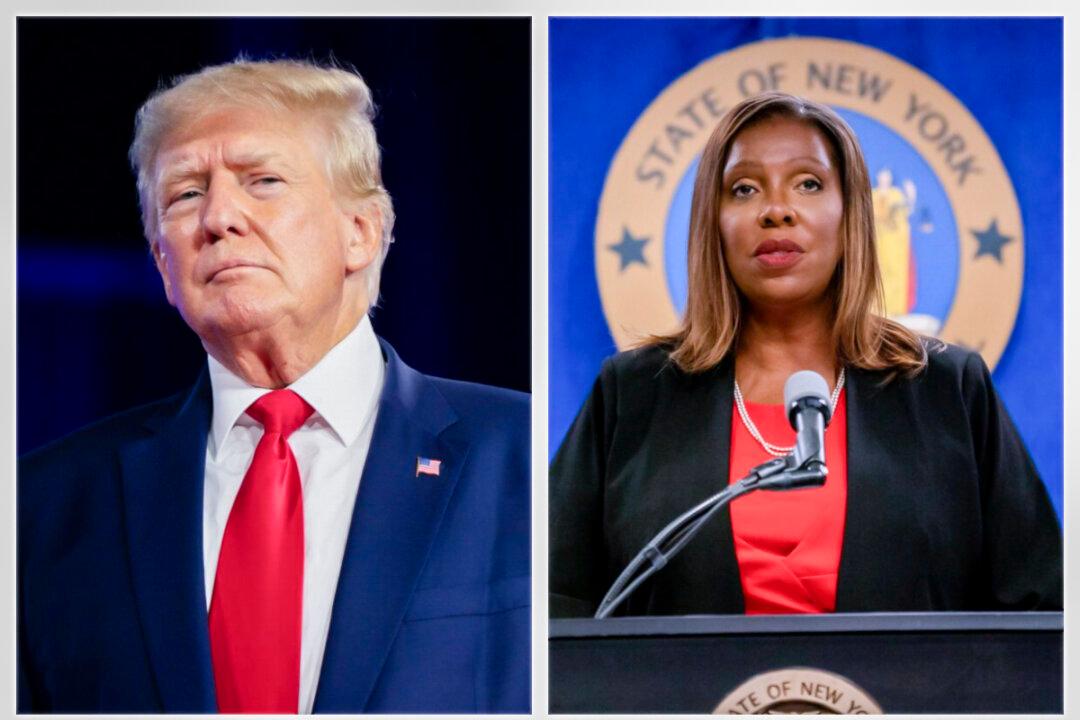New York Attorney General Letitia James’s office asked an appeals court on Aug. 21 to uphold the $454 million civil fraud judgment against former President Donald Trump from earlier this year.
In a 168-page submission, state attorneys said there is “overwhelming evidence” supporting Manhattan Supreme Court Judge Arthur Engoran’s Feb. 16 decision that Trump misrepresented his wealth to insurers, banks, and other entities to build his real estate empire.





